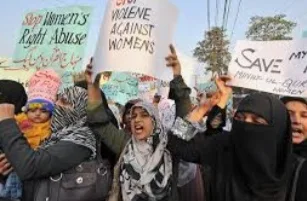Honor Killings and Violence Against Women in Pakistan
Honor Killings and Violence Against Women in Pakistan
Pakistan has long struggled with gender-based violence, particularly honor killings, domestic violence, acid attacks, and harassment. These acts are rooted in deep-seated patriarchy, cultural traditions, and weak law enforcement. Despite efforts by the government, NGOs, and international organizations, progress has been slow, and justice often remains elusive for victims.
1. Honor Killings: A Crime Disguised as Tradition
What Are Honor Killings?
Honor killings involve the murder of a female family member by relatives, who believe she has brought "shame" or "dishonor" to the family. Common reasons include:
- Marrying by choice (love marriages)
- Refusing an arranged marriage
- Suspicions of extramarital relationships (often unproven)
- Being a victim of rape (considered a "dishonor" to the family)
- Seeking divorce or independence
Statistics on Honor Killings in Pakistan
- Over 1,000 women are murdered each year in the name of honor, according to the Human Rights Commission of Pakistan (HRCP).
- Many cases go unreported due to family pressure, fear, or social stigma.
- Perpetrators rarely face consequences due to legal loopholes and social acceptance of the crime.
Why Do Honor Killings Continue?
- Cultural Acceptance: Many in rural areas see honor killings as "justice" rather than a crime.
- Weak Laws & Loopholes: Families often "forgive" the killers, making prosecution difficult.
- Police Corruption & Inaction: Authorities hesitate to intervene in "family matters."
- Fear of Repercussions: Victims' relatives rarely testify against the killers.
2. Other Forms of Violence Against Women
a) Domestic Violence
- Many women suffer beatings, emotional abuse, and even murder by their husbands or in-laws.
- Women have little legal or financial independence, making it harder to escape abusive marriages.
- Lack of shelters and support systems leave victims with nowhere to go.
b) Acid Attacks
- Women who reject marriage proposals or seek independence are often targeted with acid, causing disfigurement and lifelong trauma.
- Despite harsher laws, acid attacks still occur, especially in rural areas.
c) Workplace & Street Harassment
- Women face constant harassment in workplaces, public transport, and markets.
- Many fear speaking out due to social stigma or the risk of losing their jobs.
3. Government Efforts: Are They Enough?
The Pakistani government has introduced several laws and initiatives to address violence against women, but implementation remains weak.
Legal Reforms & Policies
- Anti-Honor Killing Law (2016):
- Makes honor killings a punishable offense, even if the victim’s family forgives the killer.
- However, many killers still escape justice due to weak enforcement.
- Protection Against Harassment of Women at Workplace Act (2010):
- Offers legal protection against workplace harassment, but many victims fear retaliation if they report abuse.
- The Acid Control and Acid Crime Prevention Act (2011):
- Stricter punishment for acid attackers, but enforcement is weak in rural areas.
- Women Protection Bill (2021):
- Addresses domestic violence, but cultural barriers prevent women from seeking help.
Weaknesses in Government Efforts
- Poor implementation of laws: Many cases never reach court, and convictions are rare.
- Corrupt & biased police: Often refuse to register cases or pressure victims to stay silent.
- Social resistance: Many still believe that punishing women is acceptable.
4. Can Society Change? What Can Be Done?
a) Changing Mindsets Through Education
- Increased education for girls can help break the cycle of oppression.
- School curriculums must promote gender equality and women’s rights.
- Religious leaders should be engaged to challenge harmful customs.
b) Empowering Women Economically
- More jobs & financial independence will help women escape abusive situations.
- Skill development programs can enable women to support themselves.
- Microfinance loans for women entrepreneurs can promote financial freedom.
c) Media & Awareness Campaigns
- TV, films, and social media should highlight women’s struggles and fight taboos.
- Survivors' stories should be shared to inspire change.
- Strict action against misogynistic content in media is necessary.
d) Strengthening Law Enforcement
- Strict punishment for honor killings and fast-tracked trials for victims.
- Gender-sensitive police training to handle cases with empathy.
- Witness protection programs to encourage people to testify against criminals.
5. Can Pakistan Open Its Eyes and Embrace the Modern World?
Yes, but change will take time. While urban areas are seeing progress, rural regions still hold onto outdated beliefs. Pakistan must push for reforms at all levels—legal, educational, social, and economic—to create a safer society for women.
Hope for the Future
- Young generations are questioning old traditions and pushing for equality.
- Women are entering politics, business, and activism more than ever before.
- The rise of social media has made it harder for crimes to stay hidden.
Pakistan has the potential to change if the government, civil society, and individuals work together to challenge harmful norms and protect women's rights.




Comments
Post a Comment